


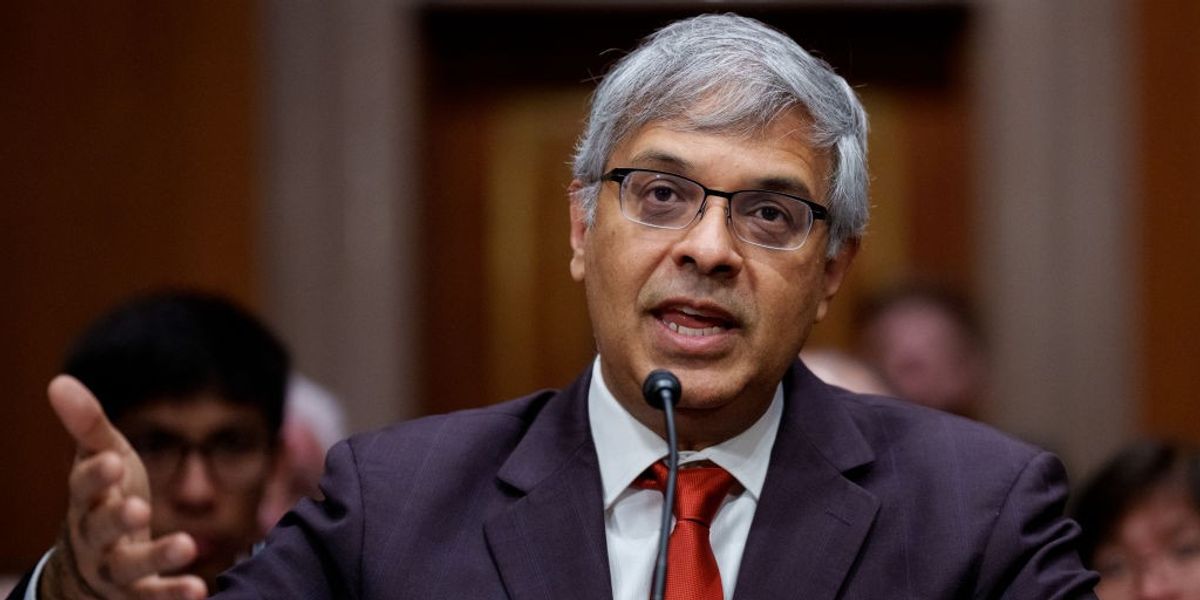
The man Donald Trump hand-picked to run America’s medical research empire has defended axing billions of dollars in grants, as lawsuits mount over abruptly cancelled projects.
Professor Jay Bhattacharya, once vilified at Stanford University for opposing lockdowns and vaccine mandates, now leads the US National Institutes of Health (NIH) with a budget of more than $40billion.
In his first major UK interview since taking the role, he described Trump as "intensely curious" and "deeply caring about the health and well-being of the people," while brushing aside the storm over cancelled projects on diversity, climate, and Covid.
Since January, the NIH has cancelled or frozen more than 2,100 grants worth $9.5billion, plus $2.6billion in contracts.
The backlash has been fierce. Almost 500 staff signed the Bethesda Declaration, accusing Bhattacharya of wasting resources and putting patients at risk.
Their open letter claimed: "Ending a $5million trial at 80 per cent complete doesn’t save $1million, it wastes $4million."
Lawsuits have also been filed, with universities and medical schools challenging what they call an "ideological purge."
Trials for cancer drugs and long Covid treatments were halted mid-course, and researchers warned patients had been left "stranded" with unmonitored implants or medications suddenly cut off.
Prof Bhattacharya dismissed the claims: "There was a part of our portfolio I would call politicised. It was focused on DEI (diversity, equity, and inclusion) grants, not so much how to improve health, but to address social issues that scientists aren’t equipped to solve.
"What we did is remove politicised science and replace it with solution-oriented science."
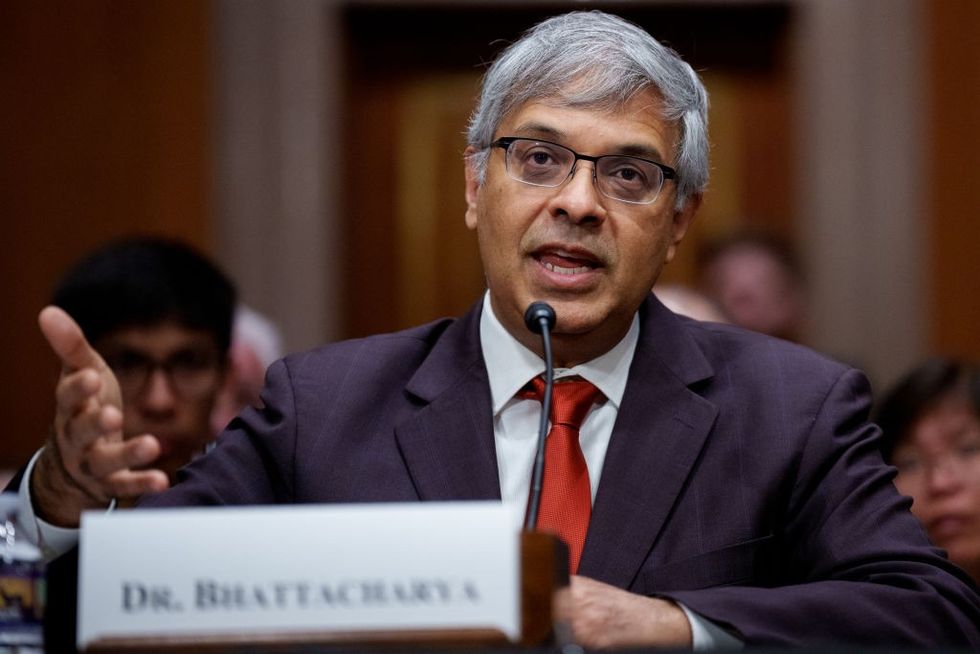
Professor Jay Bhattacharya spoke to GB News
|GETTY
Prof Bhattacharya said he supported Mr Trump and said he had already been in the Oval Office four times since his appointment in April.
He said: "What I find with him is that he is intensely curious. He’s not a scientist, but he cares about science - specifically, how it can transform and improve people’s lives. He’s very interested in the rise of autism, he wants medicines people can afford, and he cares deeply about the country’s children. Paediatric cancer is a major priority of his."
He added: "Why would he want this job where he was almost assassinated to get it? There’s no reason except that he sees the problems we have.
"We haven’t seen any improvement in life expectancy for 15 years. Obesity and diabetes are rampant, our children are sicker, and the prospect is they will live shorter lives than my generation."
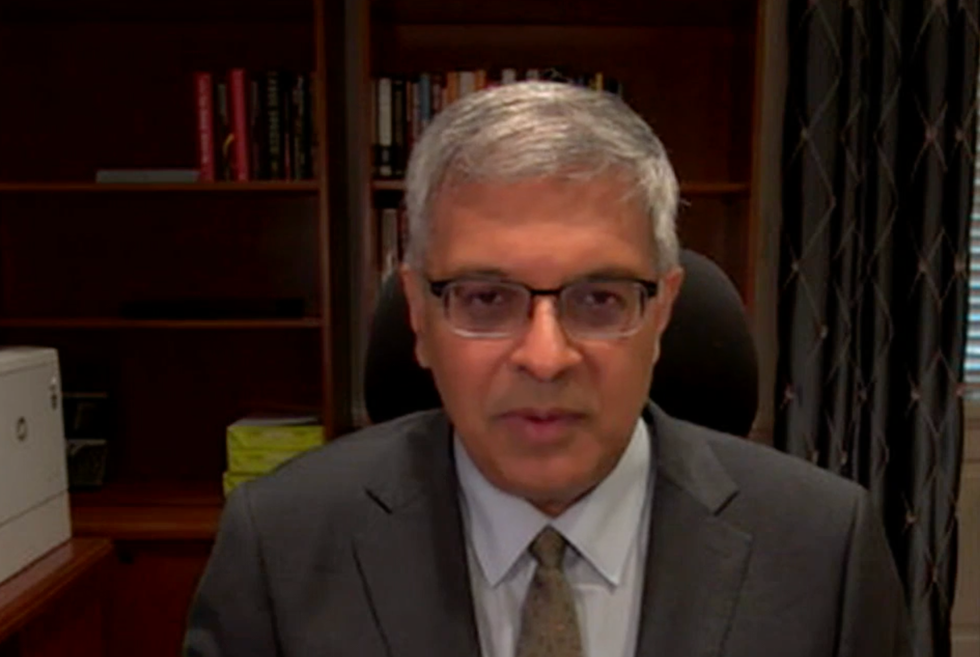 Professor Jay Bhattacharya, director of the US National Institutes of Health, revealed he has been told to beef up his security | GB NEWS
Professor Jay Bhattacharya, director of the US National Institutes of Health, revealed he has been told to beef up his security | GB NEWS
For him, that is just not acceptable. Among the most controversial cuts were projects on diversity, equity and inclusion (DEI), transgender health, and the health impacts of climate change.
He added: "That kind of science had not advanced the health of African Americans. Instead, I’ve made it a priority to support research that actually addresses those health problems.
"For example, we now have a cure for sickle cell anaemia, which disproportionately affects African American children. That’s the kind of breakthrough we should be investing in.”
He insisted climate research had not been abandoned - only narrowed: "The NIH should absolutely study the health impacts of environmental events. What we don’t do is measure the impact of fossil fuels on temperature. That’s not our role. Our job isn’t to solve all the world’s problems. Our scope is broad enough - all human health."
Mr Trump has also tightened rules on gain-of-function research, where viruses are deliberately made more infectious. Prof Bhattacharya backed the move: "Scientists should not be doing that. It poses catastrophic risks to human populations.
"We shouldn’t be taking risks on behalf of the entire world just because we think we’re doing good. Scientists are supported by the public, and we owe the public at least that much care."
"Gain of function is dangerous, let’s make viruses more infectious to humans and see what it does.
"Scientists shouldn’t be doing that. Independent voices should be regulating those experiments. I’m super proud the Trump administration has acted. It’s an example for the whole world to follow."
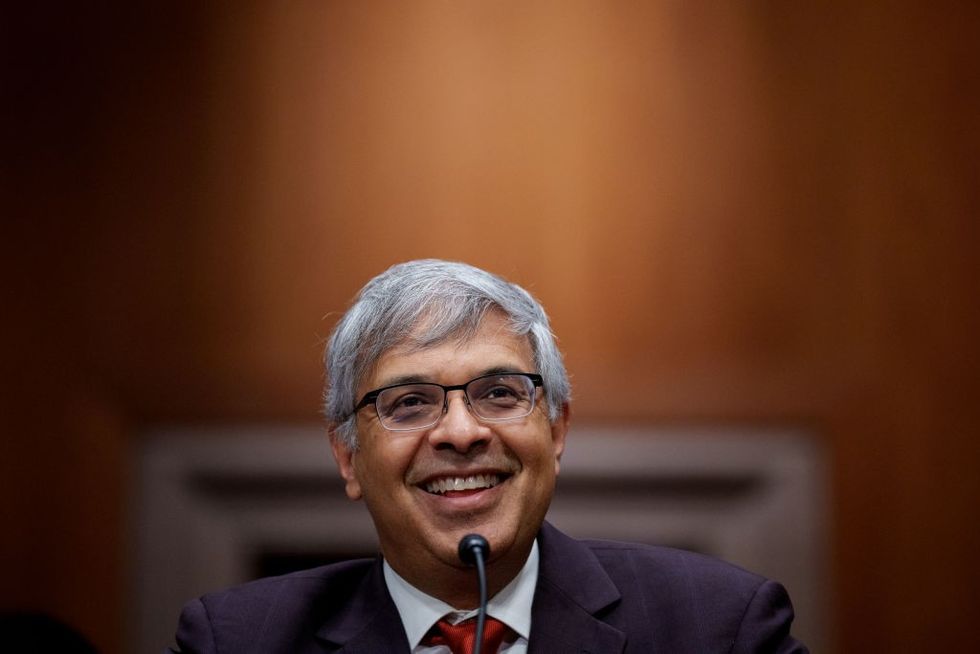
Prof Bhattacharya made cuts diversity, equity and inclusion (DEI) programmes
|GETTY
Prof Bhattacharya also broke ranks with many health officials by declaring Covid “most likely” came from a laboratory.
He said: "I think it was most likely a lab leak. That’s the most likely explanation. I know there are scientists that disagree with me.
"Let’s have a nice, fun scientific discussion and debate over this. But either way, anyone, wherever you stand, the idea that scientists should not be doing experiments that pose catastrophic risks - I think everyone can agree with that."
The NIH has been accused of pausing mRNA vaccine research, the novel and controversial technology used for many of the Covid jabs, but Bhattacharya stressed the cuts were to production contracts, not science.
He said: “We have not paused any grants for mRNA research. What the administration paused were production contracts for Covid vaccines.
"The reality is that only 10–20 per cent of people are still taking boosters, yet the government was spending vast sums on production contracts for a vaccine people don’t trust. It doesn’t make sense."
He added:"I got the mRNA jab in April 2021 and three months later I got Covid. I was pretty sick.
"A lot of people had the same experience, and yet they were losing jobs or being banned from seeing family because they weren’t vaccinated. That’s why the public lost trust."
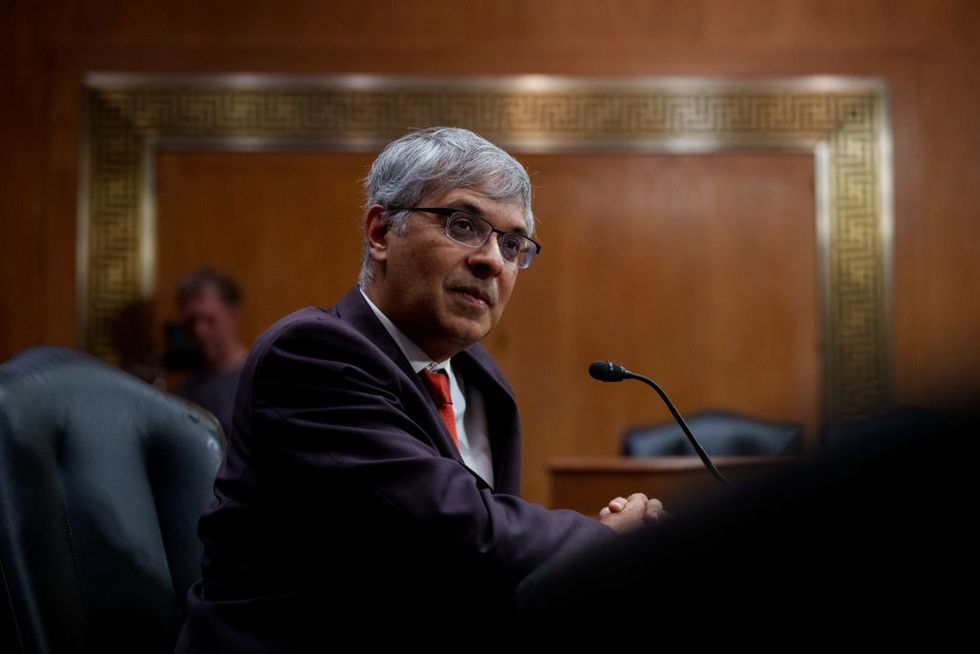
Professor Jay Bhattacharya denied he was anti-vaccine
He insisted he was not anti-vax: "I am a big fan of effective vaccines.
"My own children had all the recommended jabs, measles, polio, everything. Being pro-vaccine means being honest about side effects and adapting schedules when evidence changes.
"If you call that anti-vax, that’s just incorrect."
Prof Bhattacharya rejected claims he was simply swapping one ideology for another.
He said: "The NIH can’t solve all the political problems of the world. Our job is to do science that improves health and longevity. Imagine if science cured cancer, prevented diabetes, addressed depression and Alzheimer’s, and provided better advice on diet and exercise. That’s not utopia. But it would be a better world."
